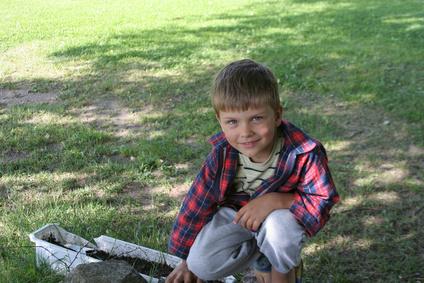TV violence can affect children in negative ways. The University of Michigan Health System points out that thousands of studies since the 1950s theorized about a possible link between exposure to media violence and violent behavior. Nearly every study, only 18 excepted, determined a link does exist.
Aggression
The American Academy of Pediatrics states that children who watch TV violence can be more aggressive, can be desensitized to violence, can have nightmares and can have be afraid of people harming them. Violent TV shows can also result in a child having less empathy for others. Part of the problem is that people who participate in violent acts on TV often get away with the violence. The violent acts are often humorous, and children do not see the consequences that go along with violence, such as human loss and suffering.
Imitation
Children like to imitate what they see on TV, even violence. In fact, TV shows often portray violence as the solution to get what you want. Children less than 8-years-old cannot distinguish between fantasy and reality. Therefore, they are more vulnerable to learn violent behaviors and act on them, according to the University of Michigan Health System.
Skewed Morals
The “good guys” on TV are violent, too. This confuses children whose parents teach that hitting and kicking is wrong. If the good people on TV are hitting and kicking the enemy, then children may think that must be the way to resolve problems. These children tend to view violence as a morally acceptable punishment, according to a report from Princeton University.
Violence in Schools
The American Academy of Child and Adolescent Psychiatry links the phenomenon of school shootings to children’s exposure to media violence. When you combine at-risk children–children who grow up in poverty, in dysfunctional families or with substance abuse in the household–with TV violence, you might have a recipe for disaster.
What You Can Do
Parents should limit TV to one to two hours per day and watch TV with their children, recommends the American Academy of Pediatrics. When you watch violent behavior with your children, you can point out what is wrong with the violence and help your children to interpret the violence. Parents can also teach children how to resolve their problems in a nonviolent way.
Photo Credit
- child image by Vaida from Fotolia.com





